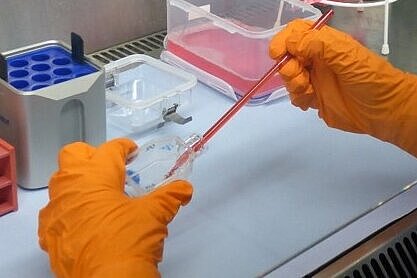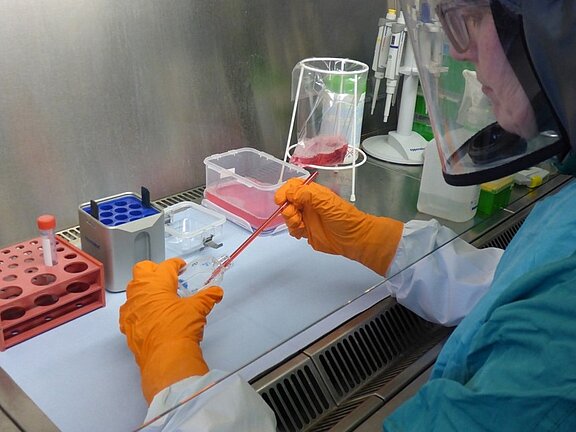Research goal:
This collaborative research project is based on nanobodies that were developed against the receptor-binding domain (RBD) of SARS-CoV-2 at the Max Planck Institute of Biophysical Chemistry (MPI-BPC), which effectively prevent infection in cell culture experiments at low picomolar concentrations.
Methodology:
In the course of this project, we will use the SARS-CoV-2 hamster model, and possibly also a transgenic mouse model, to determine whether these nanobodies can also prevent or cure SARS-CoV-2 infections in vivo. For evaluation, clinical (weight development, general condition), virological (virus excretion, distribution in the respiratory tract) as well as pathohistological data are collected and interpreted. In addition to the study of general therapeutic and prophylactic efficacy, the optimal application route, nanobody dosing, and the temporal application regime will be established.
Outlook:
In the further course of the project, nanobodies will also be developed against other relevant pathogens and tested for their in vitro and in vivo efficiency.
Involved INNT scientists:
Dr. Claudia Blaurock (PostDoc)




